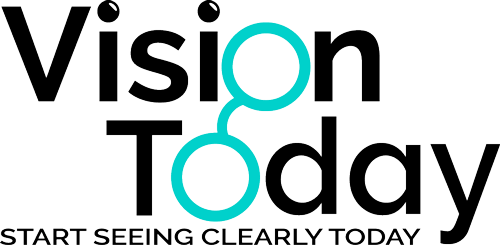 Most people elect to have refractive surgery like LASIK for the hassle-free, crisp vision it provides. But did you know that you can achieve the same results as LASIK without undergoing surgery?
Most people elect to have refractive surgery like LASIK for the hassle-free, crisp vision it provides. But did you know that you can achieve the same results as LASIK without undergoing surgery?
Orthokeratology, commonly referred to as ortho-k, safely eliminates the need for daytime glasses or contact lens wear by correcting myopia (nearsightedness), and is a popular alternative to LASIK surgery.
What Is Ortho-K?
Ortho-k uses rigid gas-permeable contact lenses to gently and safely reshape the front surface of the eye, the cornea, for clear daytime vision. These specialized lenses are designed to be worn overnight while you sleep, and removed in the morning, leaving you with corrected, stable vision throughout the day.
These custom-designed lenses work by gently applying light pressure to the epithelial layer of the cornea and molding its shape to alter its focusing power.
What are the Advantages of Ortho-K Over LASIK?
Lower Risk of Complications
Any medical device or procedure involves some risk of complications. Both ortho-k and LASIK have associated risks, but those of LASIK are considered more serious.
LASIK complications, while rare, can leave patients with corneal disorders, such as astigmatism or severe dry eye syndrome and — more commonly — visual problems like glare, distortion and seeing halos around lights.
In contrast, the risks associated with ortho-k lenses are no different from those connected to any other rigid contact lenses. Poor hygiene is the biggest risk factor for developing contact-lens irritation and complications.
Orthokeratology is Reversible
LASIK surgery is not reversible, and in the event of complications, further medical procedures may be necessary to correct any resulting problems.
Ortho-k, on the other hand, is non-invasive and completely reversible if you ever decide to cease treatment. After a few nights of not wearing the lenses, your corneas will slowly revert back to their original, natural shape.
Better For Dry Eyes
If you have symptoms of dry eye syndrome like dryness and irritation, you may want to think twice before undergoing LASIK. A common side effect of LASIK is dry eye syndrome, and many people who already have the condition are advised to not have refractive surgery.
Dry eye syndrome can also make it uncomfortable to wear standard contact lenses.
Ortho-k is great for people with mild to moderate dry eyes because there’s no need to wear eyewear, such as standard contacts, during the day.
More Cost-Effective
Both LASIK and ortho-k will most likely save you money in the long term, as eyeglasses, contact lenses and other related expenses are no longer incurred. That said, in most cases, the up-front expenses of ortho-k lenses are about half the cost of LASIK surgery.
The exact cost of ortho-k lenses will vary depending on many factors and the degree of your refractive error.
Reduce Myopia Progression
Myopia, or nearsightedness, significantly increases the risk of developing sight-threatening diseases like glaucoma, cataracts, retinal detachment and macular degeneration later in life. The higher (worse) the myopia, the greater the risk. As myopia progresses and worsens, the risks further increase.
Slowing myopia can effectively reduce this risk. Myopia can continue to worsen into a person’s 20’s, and at least 10% of nearsighted adults from ages 20 and older will still experience some degree of myopia progression.
Ortho-k has been clinically proven to slow the progression of myopia in children and young adults, making it an excellent treatment for nearsightedness.
LASIK, on the other hand, offers no such benefits. Refractive surgeries simply alter the focusing power of the cornea to produce clear vision, while ignoring the underlying problem that causes the eyeball elongation associated with myopia.
LASIK is only offered to those whose eyes have stopped growing, usually people 21 and older. So, unlike ortho-k, it generally cannot slow the myopia progression in teens and young adults.
In fact, many teenagers and young adults who are interested in eventually choosing LASIK use ortho-k lenses to stabilize their myopia and increase their chance of successful LASIK outcomes in their 20s, once their eyes stop growing.
Interested in Ortho-K? We Can Help!
If you are interested in correcting your vision without surgery or the need to wear daytime contact lenses or glasses, contact us to learn if ortho-k lenses are right for your eyes and lifestyle.
At Vision Today, our friendly and knowledgeable optometric team will guide you through all of your options and help you achieve optimal vision.
To learn more about ortho-k or to schedule a consultation, call Vision Today today!
Vision Today offers myopia management to patients from Jacksonville, Regency, Town Center, and Town Center, Florida and surrounding communities.
Q: Who is a candidate for Ortho-K?
- A: Children (ages 8 and above) and adults with mild to moderate nearsightedness/astigmatism who want clear vision without daytime eyewear are great candidates for orthokeratology. Ortho-k is also a great option for athletes who require stable vision without worrying about eyewear that can be damaged.
Q: Are there any disadvantages of Ortho-K?
- A: Ortho-k lenses must be cleaned after each use to maintain hygiene and reduce the risk of contact lens-related problems. Occasionally, ortho-k lenses aren’t suitable for patients with very high prescriptions.
References
- https://journals.lww.com/
- https://www.mivision.com.au/2020/12/myopia-progression-in-adults-what-we-do-and-dont-know/
- https://www.allaboutvision.com/contacts/orthok.htm
- https://www.allaboutvision.com/visionsurgery/lasik_complication_1.htm
